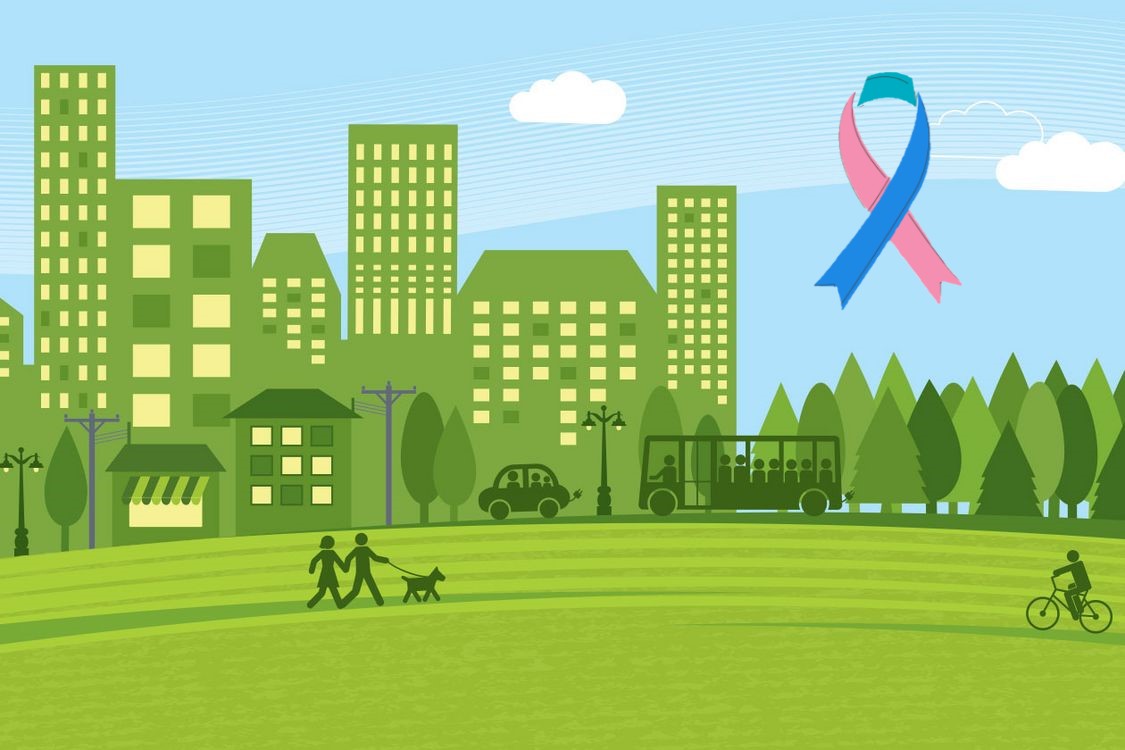In Europe, cancer causes 1.3 million deaths per year and is the second biggest cause of death after circulatory diseases. In monetary terms, it costs Europe an estimated €178 billion. The pain and suffering caused by those who suffer from the disease and their loved ones, is less easily quantified. But there is some good news. A recent report released by the European Environment Agency (EEA) finds that environmental factors such as air pollution, radon and carcinogenic chemicals are likely to contribute to over 10% of cancer in Europe. With the right policies and the necessary political will, these environmental factors can be substantially reduced, even eradicated.
“We must act today to prevent the cancers of tomorrow” says Hans Bruyninckx, Director of the EEA at a recent event organised by Friends of Europe think tank. Air pollution and radon (radioactive gas) cause more than 5% of cancer deaths in Europe. In 2020, there were 2.7 million new cancer cases in Europe with cases of breast cancer in women and prostate cancer in men particularly high. Sixteen thousand new cases of childhood cancer were also reported in the same year. Four percent of cancer cases, resulting in 80 000 deaths per year in the EU are linked to carcinogenic work environments.
Wendy Yared, Director of the Association of European Cancer Leagues, laments the general levels of ignorance about cancer amongst the public – what many people don’t realise, is that “it takes decades to develop a cancer”. The good news is that we can do something about cancer at both the individual and the societal level. Around four in ten cancers can be prevented according to current scientific evidence.
Long term approach to reduce carcinogenic environments is crucial.
A strong implementation of the EU Green Deal will result in a huge improvement in both environment and health across Europe, this much is sure. But Bruyninckx admits that a lot more research is still required to ascertain the real extent of environmental conditions on cancer rates.
The long term nature of cleaner, greener environments and better health do not sit well with the short-term perspective of many politicians. Many agree that change is needed but talk is one thing, investing in long-term projects like these, often in the face of resistance from industry and corporate stakeholders, is another. Yet as Alexander Simidchiev, medical doctor and Bulgarian MP, points out, “prevention is one of the most effective, cheapest ways of improving health outcomes”. Simidchiev would like to see prevention embedded at EU-level.
Children disproportionately affected by poor air quality.
Founder and CEO of the Clean Air Fund, Jane Burston, explains that air quality is something that most people can relate to with ease – many have had first-hand experience of it. Many see the effects on their children who are disproportionately affected by air pollution and develop asthma or worse as a result. A WHO report (2018) estimated that over 90% of children under 15 breath air that puts their health and development at risk. Unsurprisingly, parents are some of the most vocal campaigners for clean air, says Burston.
Her organisation also works with mayors from around the world who see the effects of air pollution on their cities and are well-placed to take action against it, particularly around schools and hospitals. The Clean Air Fund is currently collaborating on projects in Poland and Bulgaria.
The Air for Health Bulgaria project is designed to raise awareness of the dangers of air pollution on health, amongst General Practitioners (GP). Many local doctors don’t realise the seriousness of the problem themselves explains Simidchiev. But once they fully appreciate the problem, they can really help to advocate and spread the word to their patients and colleagues.
Health inequalities exacerbated by living and working environments
Similarly, Yared highlights the work done at regional level by the Spanish Association against Cancer with local mayors, in order to raise awareness of the environmental effects associated with development of cancer. This organisation has also drawn repeated attention to the inequalities associated with both the development and treatment of cancer.
Simidchiev also points out that the effects of poor air quality are mitigated by the quality of the health care system in each affected area. For this reason, Eastern and South Eastern Europe tend to be more affected than northern Europe. Densely populated areas including the Po Valley in France, the North-Rhine West Phalia region in Germany and the urban areas stretching from Brussels to Amsterdam are also strongly affected.
The European Air Quality Index provides detailed breakdowns of air quality in regions and cities across the EU.
Standing firm on the EU Green Deal will bring positive payoffs all round
Looking ahead, Burston agrees that it is important that environmental policies do not burden the poorest. She suggests that a budget be made available for those most in need in order to make the transition to cleaner energy a possibility for all. She is also hopeful about the EU’s revision of the Ambient Air Quality Directive due next year. This directive sets limits to the amount of pollution allowed in the air we breathe and is due for revision in light of the EU’s Green Deal.
Bruyninckx insists that we must stand firm by the EU Green Deal, in spite of macro-economic pressures like oil, gas and food shortages. He emphasises the need to highlight the positive payoffs of the Green Deal to EU citizens and points out that it should be viewed as an investment in our health rather than a cost. “Let’s not be side-tracked – stay the course”.

